PAGE IN PROGRESS

Welcome to mad world of Robert Fripp, his revolving door of musicians, and his ever-changing creative ambitions. King Crimson is still active and has been, barring a couple of dissolutions, since 1968. Specializing in progressive rock in the purest sense of the phrase, Fripp and Co. have, over the last 50 years, incorporated elements of classic rock, classical music, jazz, pop, math rock, ambient minimalism, new wave, worldbeat, nu-metal, industrial rock, and many others. The output covers the whole spectrum from accessible to heavily experimental, strictly composed to entirely improvisational, mellow to heavy.
Robert Fripp is possibly one of the biggest assholes in the music business. He is purposely intimidating and a rude control freak. He is an arrogant, self-important egomanic who values his own opinions above all others. He treats his band like a major business, selling merchandise and downloads with marked-up prices on his overly-convoluted website, imposing legal restrictions upon anyone he catches sharing his music and images, and pumping out erroneous compilations and extravagant boxset after extravagant boxset of previously-released material on a bi-yearly basis. That being said, he’s incredibly dedicated and motivated, he does have a personable stage presence, and he’s one of the most innovative guitar players to emerge from a post-Hendrixian classic rock era. King Crimson is one of my favorite classic rock bands, and their contributions have been important in driving rock music’s direction through the ’70s and into the early ’80s. Fripp not only adapts with the changing times, but is able to consistently stay innovative within the changing times in a way that someone like David Bowie could’ve only dreamt about.
The picture above represents my favorite lineup of Adrian Belew, Robert Fripp, Bill Bruford, and Tony Levin, during the early ’80s. The King Crimson music of that era was more powerful than Belew’s hairline…but much less powerful than Levin’s mustache.
JUMP TO:
(1969) In the Court of the Crimson King
(1970) In the Wake of Poseidon
(1970) Lizard
(1971) Islands
(1973) Larks’ Tongues in Aspic
(1974) Starless and Bible Black
In the Court of the Crimson King (1969) – Rating: 9/10
No Full Album Review Yet
 In October of 1969, less than two months before the end of the most important decade of all time for modern rock and roll, King Crimson dropped the most important progressive rock album of all time. While smatterings of this type of sound had already been happening with bands like the Moody Blues, or the Who, or even under-the-radar outfits like Procol Harum, it took King Crimson to deliver it with the kind of “HEY LOOK AT ME” bombast that the genre as we know it requires. The tense and heavy music, the mysterious, unsettling aura, that iconic album cover. It was a game-changer, and, as far as this particular album goes, nothing else has ever come close to replicating the mood. It’s simultaneously a product of its time (in the sense that its time was the only time for In the Court to work as well as it did) and a timeless artifact. It holds up 50 years later, it will still hold up 50 years from now.
In October of 1969, less than two months before the end of the most important decade of all time for modern rock and roll, King Crimson dropped the most important progressive rock album of all time. While smatterings of this type of sound had already been happening with bands like the Moody Blues, or the Who, or even under-the-radar outfits like Procol Harum, it took King Crimson to deliver it with the kind of “HEY LOOK AT ME” bombast that the genre as we know it requires. The tense and heavy music, the mysterious, unsettling aura, that iconic album cover. It was a game-changer, and, as far as this particular album goes, nothing else has ever come close to replicating the mood. It’s simultaneously a product of its time (in the sense that its time was the only time for In the Court to work as well as it did) and a timeless artifact. It holds up 50 years later, it will still hold up 50 years from now.
I could write a ton here that would be better suited for a full-fledged album review, so I’ll try to hit only the very basic points: There’s an eerie beauty to this whole production that feels larger than its 44-minute runtime. The frantic paranoia of the classic opener “21st Century Schizoid Man”, the solemn and mournful fluteiness of “I Talk to the Wind”, the tension-laden sad builds of “Epitaph”, the avantgarde noodling of “Moonchild”, and the cinematic grandiosity of “The Court of the Crimson King”, it all sounds so genuinely important. Like the tectonic plates have shifted catastrophically under everyone’s feet without warning, altering the continents forever and humanity has to just deal with it and adapt.
Contrived hyperbole aside, every person who fancies him- or herself a serious fan of music should at the very least listen to this album. All the prog excess in the world, and even a lot of heavy metal excess, can be traced back to In the Court‘s display of artsy-fartsy indulgence, extended solos, theatrical lyrics, musical virtuosity, technical compositions, and testing the listener’s patience to almost a sadistic degree. And yes, I’m taking a point off for the same reason the rest of the internet takes a point off: 10 out of the 12 minutes of “Moonchild” is total fucking bullshit.
In the Wake of Poseidon (1970) – Rating: 6/10
No Full Album Review Yet
 I think a 6 is being generous, but this album did grow on me after repeated listens and many forays into the live recordings of this era. Now I treat it like a friend that bugs me a little bit and who I only want to talk to or visit very occasionally.
I think a 6 is being generous, but this album did grow on me after repeated listens and many forays into the live recordings of this era. Now I treat it like a friend that bugs me a little bit and who I only want to talk to or visit very occasionally.
By this time everyone quit the band, leaving Fripp all by his sad little lonesome. Fripp scrambled to get musicians to play this material and had to settle for his old high school friend Gordon Haskell and a couple of previous King Crimson members who I’m sure Fripp had to beg on his knees to get back just for the studio sessions.
The general consensus is that In the Wake is just In the Court Pt. 2, but I never thought so. Although, I will admit that the first few tracks mirror the moods of In the Court‘s first few tracks so blatantly that it probably wasn’t a coincidence. The two albums are distinctly different, though, with the debut presenting a super-serious and somewhat fustian celebration of theatrics, while In the Wake presents a more subdued and almost mischievous angle to the similar musical themes. For example, “Pictures of a City” is often diminished as an inferior version of “21st Century Schizoid Man”, but the jazzy instrumentals are way more impishly playful this time around than anything on In the Court. Other album highlights are the cool, jittery jazz-pop number “Cat Food” and the extended spooky jam “The Devil’s Triangle”, which bases its foundation around the riff from Holst’s “Mars” from the Planets Suite.
That’s about it for me, though. The rest is forgettable at worst and ultimately inessential listening. However, if you have endless amounts of free time to dig into the many archive recordings of this era, the band’s ability to improvise over these loosely-structured song frameworks makes it almost worth it! Plus, if you like your King Crimson on the prettier side, In the Wake of Poseidon is your best bet to hear Fripp’s classical composition “prowess” and still feel like he’s going somewhere with it.
Lizard (1970) – Rating: 8/10
No Full Album Review Yet
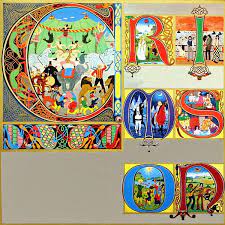 Yes, an 8/10. No, I haven’t lost my goddamned mind. Critics are usually not kind to Lizard; Robert Fripp himself has called it “unlistenable”. I say, any King Crimson fans skeptical of Lizard should try hearing the Steven Wilson remaster at least once. They might find something to like.
Yes, an 8/10. No, I haven’t lost my goddamned mind. Critics are usually not kind to Lizard; Robert Fripp himself has called it “unlistenable”. I say, any King Crimson fans skeptical of Lizard should try hearing the Steven Wilson remaster at least once. They might find something to like.
Myself, I’m an unapologetic fan of this album and I’ll ardently defend it until I’m dead for two reasons: a) I love classical music, especially the ugly, avantgarde fringe stuff, and b) I love jazz music, especially the ugly, avantgarde fringe stuff. Boom. Lizard is a marriage of the uglier sides of classical and jazz brought into a structured prog-rock context. Fripp barely even plays his guitar, most of the heavy work is done by an ensemble of musicians playing traditional orchestral instruments (saxophone, flute, oboe, English horn, trumpet, trombone) in addition to the guitars, drums, and acoustic/electric pianos. Most of this music sounds playfully sarcastic and passive-aggressively menacing. It’s noisy, replete with challenging passages of avant-prog, but also flirts with medieval whimsy more than any other King Crimson project for sure.
I don’t even have anything truly bad to say about Gordon Haskell’s voice either. This is the only album with Fripp’s buddy as lead vocalist, and everyone hates him. I personally think his timbre matches the whole vibe nicely, and I don’t think John Wetton is really that much better as the lead vocalist on Larks’ Tongues in Aspic, Starless and Bible Black, and Red. They both have this kind of stuffy, unpowerful voice anyway. Peter Sinfield’s lyrics don’t annoy me on Lizard either; the guy’s a poet and he seems to specialize in enigmatic descriptions of modern mundanity. I think? “Each afternoon you train baboons to sing/Or swim in purple Perspex water wings/Come Saturday jump hopper, Chelsea brigade/High bender-trender, it’s all indoor games“. Yeah, don’t ask me, but I think these puzzling metaphors fit with the puzzling song structures and I like them! I just do. Sorry.
Lizard is the kind of album I wish more progressive rock bands had made. It’s fanciful without being cloying. I simply don’t understand the hate for it and, for that, I’m thankful.
Islands (1971) – Rating: 4/10
No Full Album Review Yet
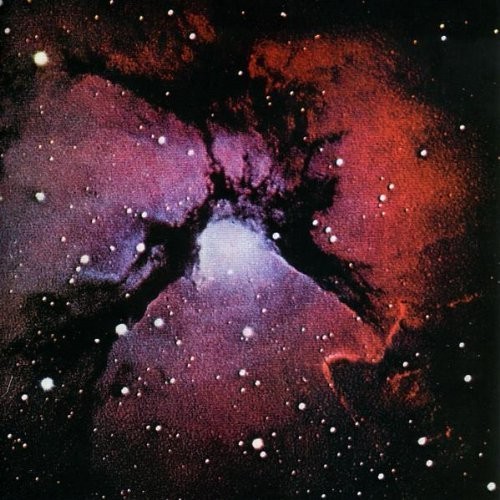 While I am a stalwart supporter of Lizard, I do see and agree with the problems on Islands. Here Fripp explores the prettier and more relaxing side of improvisation, and I don’t think he’s very good at it. Most of the ambience is aimless, the concept as a whole is flagrantly unstructured, all resulting in Fripp’s most unfocused project he ever made.
While I am a stalwart supporter of Lizard, I do see and agree with the problems on Islands. Here Fripp explores the prettier and more relaxing side of improvisation, and I don’t think he’s very good at it. Most of the ambience is aimless, the concept as a whole is flagrantly unstructured, all resulting in Fripp’s most unfocused project he ever made.
For the defense, I do enjoy some of the saxophone-heavy excerpts such as the extended (admittedly directionless) jam on “Formentera Lady”, or the sudden bleating that happens in the middle of “The Letters”. “Prelude: Song of the Gulls”, a pleasing arrangement of orchestral lushness, is legitimately good too. That’s really all I can say.
The problems far outweigh the good stuff, of course. Peter Sinfield is at his very worst with the lyrics, especially on “Ladies of the Road” which skewers flower power-era feminism with a verse like “Two fingered levi’d sister/Said ‘Peace’, I stopped I kissed her/Said ‘I’m a male resister’/I smiled and just unzipped her“. Fucking gross, Sinfield. “Ladies of the Road” also tries very hard to be the Beatles, almost treading ripoff territory. It feels incredibly out of place for King Crimson, a band that usually seems to at least attempt to exist in their own vacuum.
Also, I already know Robert Fripp spends so much time up his own ass that he probably owns a summer home there. I usually don’t care about that kind of thing if the music is good, but Islands has this pretentious air of self-importance that the music isn’t meeting halfway on. While Lizard doesn’t project any obvious delusions of high art, it’s all over the place on Islands. The musical ideas are too half-baked for me to give that high-falutin’ attitude a pass.
At this point in time King Crimson was barely staying afloat anyway. The whole project would have died in the hands of someone far less persistent than Fripp by this time. Luckily, Islands marks the end of the band’s many major career setbacks. Fripp recalibrates his vision and the King Crimson as we really know it will begin to finally thrive going forward.
Larks’ Tongues in Aspic (1973) – Rating: 9/10
No Full Album Review Yet

Out goes the chaff, and in comes vocalist/guitarist John Wetton! Percussionist Jamie Muir! Drummer Bill Bruford! Violinist/keyboardist David Cross! No, not THAT David Cross! This one is more British and less funny.
This shake-up was Fripp’s most critical decision for the future of King Crimson’s success, since personal and musical opinions were constraining his vision. I wonder if Fripp would’ve ever been discouraged enough to return to his day job at whatever it was he was doing before music. Quality supervisor at a paper clip company? Larks’ Tongues in Aspic was a critical fucking hit, a return to form, and a benchmark for the darker, more angular music that represents this incarnation of the band.
As before, classical music strongly influenced Fripp’s songwriting decisions, but the results are less fanciful. The absence of flute and saxophone removes the padding on the edges to great effect, making the music tense again like the good old days. The free improvisation approach to the arrangements makes this one of the better bands to check out in a live setting (The massive Starless and Road to Red box sets, respectively, are essential, while the Larks’ Tongues 40th Anniversary box set is good, but marred by awful sound quality).
One could say that the 13-minute “Larks’ Tongues in Aspic, Part One” is proto-math rock. Was this its genesis? Tight, complicated drum patterns and exciting guitar that sounds like it’s quickly bounding from rock to rock over a raging river. “Book of Saturday” and “Exiles” are sleepy Wetton ballads with a lot of shifting and moving parts, showing off the violin textures and Wetton’s stuffed-nose British crooning. And then the cavalry marches in with “Easy Money”, livening up the party a little bit! Wetton does some more singing, and then the band launches into a slow-cookin’ jam that grooves on a syrupy bassline and some interesting glockenspiel percussion. There’s also a laugh at the end that I swear to fucking God was sampled on little plush doll that my sister got as a graduation gift! Someone look that up for me.
It’s “The Talking Drum” where the band’s official transition is locked in, as far as I’m concerned. This track spends the entire seven minutes building up from nothing, working the drums into a tense In the Court-era improv session: the violin snakes around on Eastern scales while Fripp stays in the upper register. With “Larks’ Tongues in Aspic, Part Two”, the transition is complete. Fripp crunches his guitar and maintains these uncomfortable chords, the violin whips up a frenzy, the drums pummel sharply, each instrument begging the others for mercy.
Another important album in the early prog rock cannon, but the best is still yet to come.
Starless and Bible Black (1974) – Rating: 5/10
No Full Album Review Yet
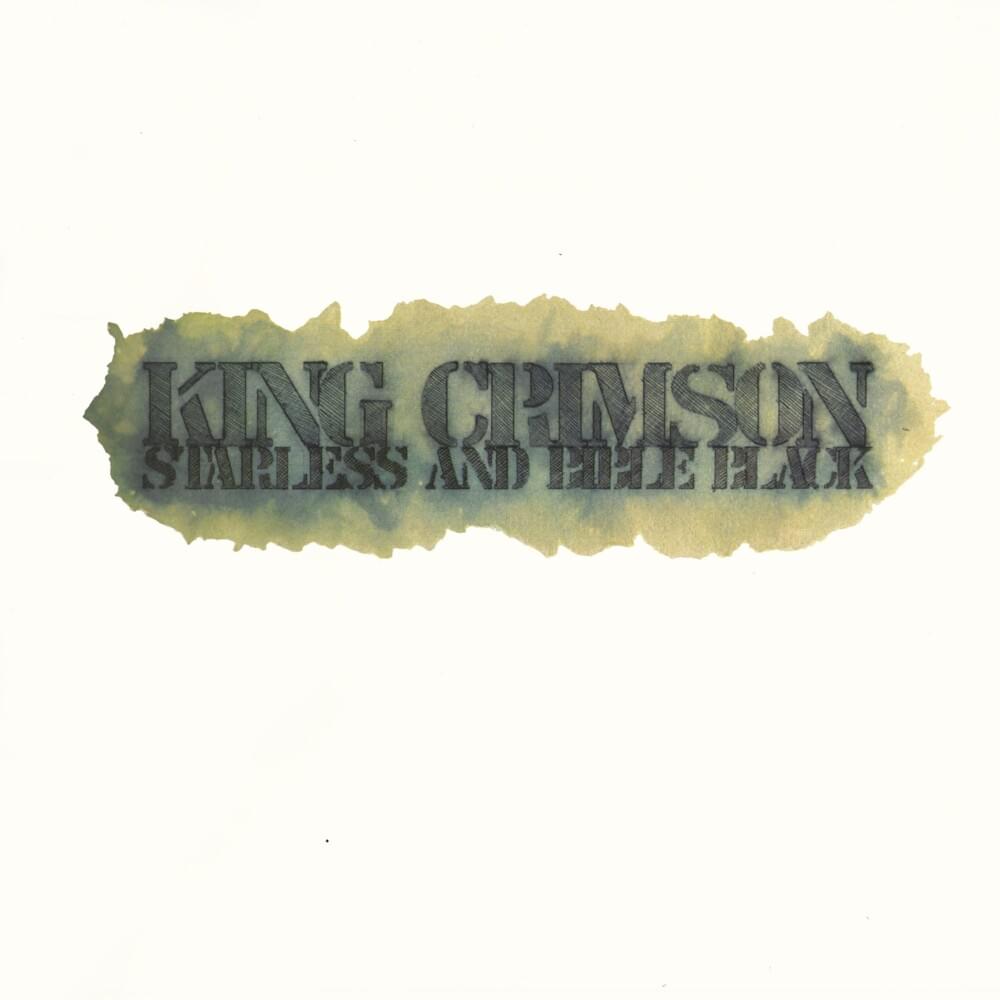
Meh. King Crimson tried to strike gold twice in a row and missed the mark. It’s not entirely their fault this time; percussionist Jamie Muir found God in a biscuit one evening and decided to quit the band without telling anybody why. Bill Bruford picked up the slack free of too many seams, but the extra strain put on the band during their psychotically ambitious 1973 touring schedule reduced the amount of studio time that the band could commit to. So, in essence, Starless and Bible Black comprises some of the best improvisational material recorded live during these tours and interspliced with studio recordings.
The results are a mess, frankly. All the possibly tense moments are undercut by disjointed pacing. The ironically named opener “The Great Deceiver” is the album’s only highlight, making a grand entrance that has only been surpassed thus far by the debut’s “21st Century Schizoid Man”. Jagged and frantic out of the gate, it runs off the rails as the bassline huffs and puffs to keep up. Apparently, the refrain “Cigarettes, ice cream, figurines of the Virgin Mary” are the only Crim lyrics actually written by Fripp himself! The guy can’t sing or write, why does he even have a band?
The rest of the album isn’t essential listening for a casual fan. “Lament” is multi-faceted Wetton ballad that starts eventually chugging with some heightened intensity. “We’ll Let You Know” is a disposable, avant-garde instrumental tinkering session, ending in shiny and sharp guitar shards. “The Night Watch” is meandering, melody-free storytelling. “Trio” is pretty, but dull, improvised modern classical that reminds me of the shittiest parts of Islands. I really want to enjoy “The Mincer” more than I do, but it’s just another throwaway on an over-padded album. I get that this is all improvised stage music, but the tension on this track feels completely manufactured.
And then there are the giant two slabs tacked at the end, the title track and “Fracture”, filling up an entire record side. Both more of the same, nothing to grab onto at all to say a definitive “this rules” to. Just not very engaging improv all around.
This is the In the Wake to Larks’ Tongues‘s In the Court. Know what I mean? A subpar version of its predecessor. Not different enough to have its own identity. This is not a complete flop, but it suffers from a lack of cohesion and a lack of any truly memorable and/or ass-kicking moments. It doesn’t help that it’s sandwiched in between two legendary albums, either.






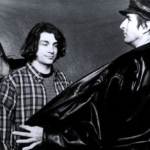
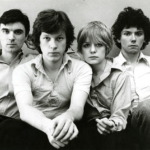
Click here to ridicule this post!